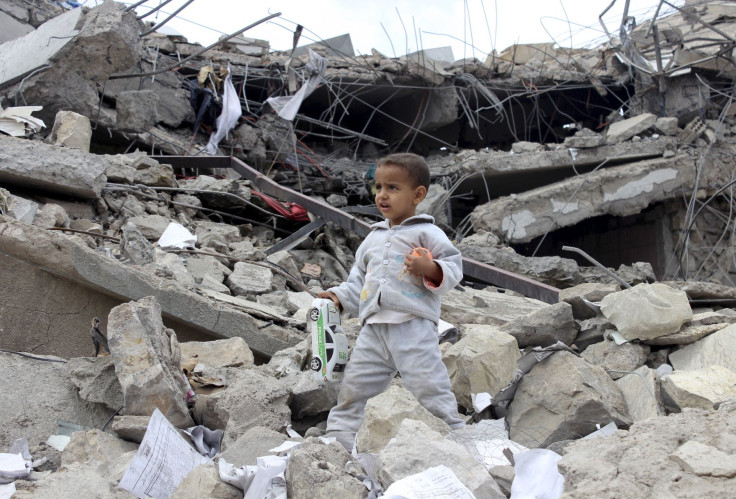Yemen's Health Care In 'Collapse' Since Saudi Arabia Began Anti-Houthi Campaign

Fighting in Yemen has become so intense between the Saudi Arabian-led coalition and the Shiite Houthi rebels that health and aid groups are not able to work in parts of the country, where roughly one-third of the population is currently in need of medical assistance and “entire neighborhoods of civilians” are targeted, according to Doctors Without Borders.
“It has become very challenging for us to do our work in Yemen,” said Philippe Bolopion, the United Nations and crisis advocacy director at Human Rights Watch, at a panel on the crisis Thursday.
At least 80 people were killed in Yemen on Wednesday, marking the deadliest day in the country since Saudi Arabia began its bombing campaign against the Houthi rebels in March. Wednesday’s bombing brought the death toll to nearly 2,000, including “hundreds of women and children,”with some 8,000 more injured. Every faction fighting is responsible for a portion of the civilian deaths, Bolopion said.
“We don’t care about Houthis, but the strikes are hitting our homes and killing our children, we just want to live,” a 55-year-old man who lost his house and three family members to the conflict, told Yemen Times.
Health facilities and workers have been hit hard since the beginning of the conflict. The shortage of fuel in Yemen is now threatening to shut down the few hospitals that have managed to keep running, which could put the lives of thousands in danger.
“There are no drugs available, even if you have the money to buy them,” said Pablo Marco, Doctors Without Borders' Yemen operations manager, who recently returned from the capital, Sanaa. “It’s a slow-motion collapse of the health system.”
Doctors Without Borders, or MSF, its French initials, is one of the only aid organizations able to work in the country, and even they are not able to reach certain cities and towns where fighting is particularly heavy. The organization has already sent more than 100 tons of humanitarian aid to Yemen.
In some areas, “it is impossible to insert a team into this situation because the level of fighting is just too high,” said Marco.
The Saudi-led coalition has also made use of U.S.-supplied cluster munitions, according to Human Rights Watch. Cluster bombs release dozens of smaller munitions when they are launched, not all of which detonate right away, making them a danger to civilians even after a strike.
Saudi Arabia is leading a 10-country Arab coalition that began an airstrike campaign targeting Iran-backed Shiite Houthi rebels after the group seized the capital and forced U.S.-backed president Abed Rabbo Mansour Hadi to step down. Hadi fled the country to Saudi Arabia just hours before the air campaign began.
There are now an estimated 5,000 Iranian-backed fighters in Yemen assisting the Houthi rebels. On Sunday, Iran confirmed for the first time that Iranian forces trained the Houthis.
“Each one who is with us comes under the banner of the Islamic Republic [of Iran] and this is our strength,” said Brig. Gen. Esmail Ghani, deputy commander of the Quds Force, an Iranian elite unit, according to Iran’s state-run Mashregh News. “The defenders of Yemen have been trained under the banner of the Islamic Republic and the enemies cannot deal with Yemeni fighters.”
© Copyright IBTimes 2024. All rights reserved.





















